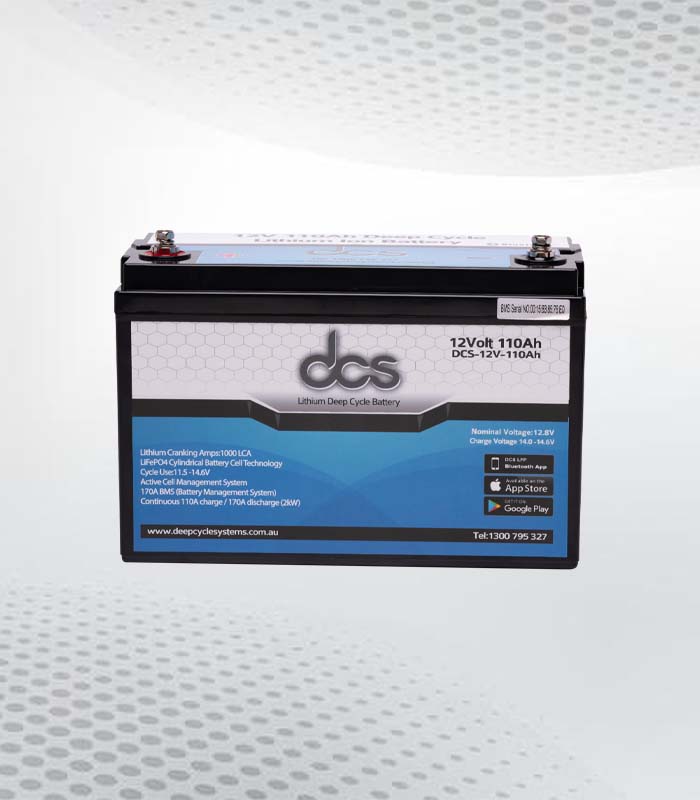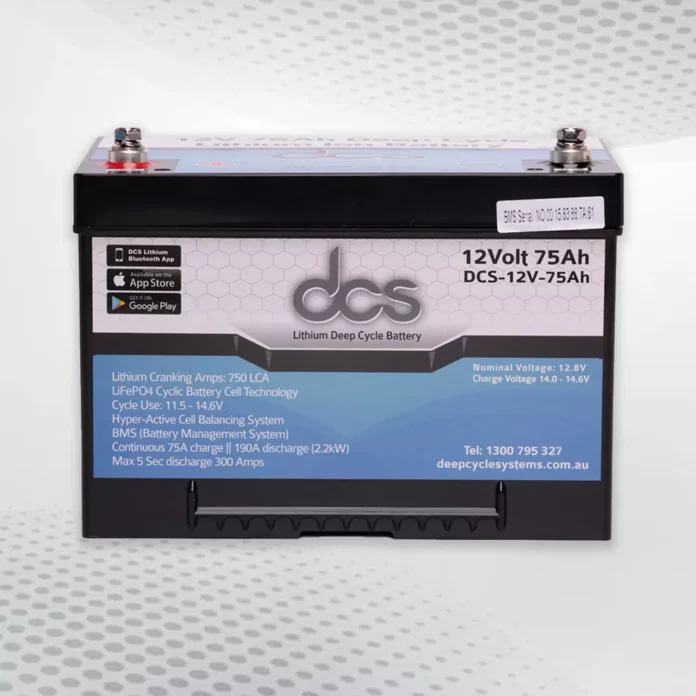When it comes to choosing a car battery, there are various options available in the market. However, one type of battery that has been gaining popularity in recent years is the 12v lithium ion starter battery. With its advanced technology and numerous benefits, it’s no wonder why more and more car owners are making the switch to Best Lithium Ion Car Battery. In this blog post, we will delve into the traits and perks of the best lithium ion car battery and why it could be the ideal choice for your vehicle.
Unveiling the Basics of Lithium Ion Batteries
Lithium-ion batteries stand out in the realm of automotive power sources due to their distinctive electrochemistry. At their core, these batteries leverage the movement of lithium ions between the anode and cathode during charge and discharge cycles, which differs fundamentally from the chemical reactions in traditional lead-acid batteries. This process is not only more efficient but also contributes to the batteries’ higher energy density—a critical factor that allows for greater power storage in a smaller package.
Another notable characteristic is their low self-discharge rate, ensuring that they retain their charge for longer periods when not in use. This aspect is particularly beneficial for vehicles that are not driven daily, as it minimizes the likelihood of encountering a dead battery. Furthermore, lithium-ion batteries can endure a significant number of charge and discharge cycles, surpassing the cycle life of conventional batteries.
This ability to withstand numerous cycles without a substantial decrease in capacity is a testament to their robustness and long-term durability. By embracing these batteries as a car starter option, drivers can enjoy the advantages of a technology that is designed to meet the demands of modern vehicles, providing a reliable and efficient power source that enhances the driving experience.
Enhanced Performance and Reliability
Introduction of Lithium-Ion Car Starter Batteries:
- Highlight the shift towards lithium-ion car starter batteries as a significant advancement in vehicular performance and dependability.
Remarkable Cranking Power:
- Contrast lithium-ion batteries with lead-acid batteries, emphasizing their ability to deliver a powerful burst of energy needed for ignition, even in harsh weather conditions.
- Stress the reliability of vehicle starting, regardless of extreme temperatures, as a key benefit of lithium-ion batteries.
Durability and Resilience:
- Emphasize the durability of lithium-ion batteries and their ability to sustain numerous charging and discharging cycles without significant capacity loss.
- Highlight how this resilience extends the battery’s lifespan and ensures consistent performance over time, reducing the need for frequent replacements.
Consistent Performance:
- Discuss how lithium-ion batteries maintain stable output throughout the discharge cycle, unlike other battery types prone to voltage drop.
- Illustrate how this consistency in power delivery ensures optimal functioning of the car’s electronic systems, contributing to overall reliability.
Lightweight Design and Its Advantages of Lithium Battery as Starter Battery
One of the most appealing attributes of the Lithium Battery as Starter Battery is its significantly lighter weight compared to traditional lead-acid batteries. This reduction in weight offers a multitude of benefits that extend beyond mere convenience. For starters, the decrease in overall vehicle weight directly translates to enhanced fuel efficiency. With less weight to move, the engine does not have to work as hard, which means it consumes less fuel during operation. This can lead to noticeable savings on fuel expenses over time.
Moreover, the lightweight nature of lithium ion batteries contributes to better handling and performance of the vehicle. Cars equipped with lighter batteries can enjoy improved acceleration and braking, as the reduced weight allows for quicker response times and easier maneuverability. This makes for a smoother and more enjoyable driving experience.
Additionally, the strain on various components of the vehicle, such as the suspension system and tires, is significantly lessened with a lighter battery. This can lead to lower maintenance costs and extend the lifespan of these parts, further adding to the economic advantages of choosing a lithium ion starter battery.
By incorporating a 12v lithium ion starter battery into your vehicle, you are not only opting for a power source that boosts your car’s performance but also making an investment in the longevity and efficiency of your vehicle as a whole.
 Fast Charging and Lithium Car Starter Battery
Fast Charging and Lithium Car Starter Battery
Rapid Recharging:
-
- Emphasize how Lithium Car Starter Battery minimize vehicle downtime by allowing for accelerated charging without compromising longevity or performance.
- Illustrate the technology behind this feature and its benefits in ensuring the vehicle is always ready for use.
Efficiency and Charge Retention:
- Discuss the efficiency of lithium-ion batteries in maintaining their charge over extended periods, especially beneficial for sporadic vehicle usage or cold climates.
- Contrast this with lead-acid batteries, which may experience significant power losses in similar conditions.
Dependable Start-Up:
- Highlight how lithium-ion batteries’ superior charge retention ensures a dependable start-up every time, reducing the risk of being stranded due to a drained battery.
- Stress the practicality and functionality of lithium-ion technology in addressing common battery-related challenges faced by vehicle owners.
Environmental Benefits and Safety Features of 12v Lithium Ion Starter Battery
One of the significant advantages of switching to a 12v Lithium Ion Starter Battery is its eco-friendly attributes. These batteries contribute to a greener planet by utilizing materials that are less harmful to the environment compared to the lead and acid found in traditional batteries. The absence of these toxic substances makes lithium-ion batteries a more sustainable choice and facilitates easier and safer recycling processes. Additionally, their longer lifespan means fewer batteries must be produced and disposed of over time, reducing the ecological footprint associated with vehicle maintenance.
Safety is another paramount concern addressed by lithium-ion technology. These batteries are engineered with advanced safety mechanisms that guard against common hazards such as overcharging, short-circuiting, and thermal runaway. Integrated protection circuits actively monitor the battery’s health, mitigating risks and ensuring a safe operation under various conditions.
This built-in safety feature contrasts sharply with the vulnerabilities of traditional batteries, offering peace of mind to environmentally conscious and safety-oriented drivers alike.
Moreover, the efficiency of lithium-ion batteries in energy usage translates to less wasted electricity and a consequent reduction in the carbon emissions from vehicles. By choosing a lithium-ion starter battery, car owners not only elevate the performance of their vehicles but also contribute to a healthier environment and benefit from enhanced safety features, aligning automotive needs with ecological responsibility and personal safety.
Economic Considerations: Lithium Ion Car Starter Battery
Long-Term Value:
-
- Highlight the extended lifespan of Lithium Ion Car Starter Battery compared to lead-acid ones, resulting in fewer replacements and lower replacement costs over the vehicle’s lifetime.
Operational Efficiencies:
- Discuss the operational efficiencies of lithium-ion batteries, including their ability to maintain a consistent charge and rapid recharging times, which minimize downtime and enhance vehicle availability for use.
- Emphasize how these efficiencies can lead to savings in fuel consumption and operational costs over time.
Return on Investment:
- Explain how considering factors such as longevity, efficiency, and performance improvements makes the return on investment increasingly apparent over time.
- Argue that while the upfront cost may be higher, the durability and operational benefits of lithium-ion starter batteries make them financially prudent in the long run.
Making the Switch: What To Know
Assessing your vehicle’s compatibility is imperative before transitioning to a 12v lithium-ion starter battery. This involves understanding your car’s specific power requirements and ensuring your chosen lithium-ion battery matches these needs. Different vehicles have varying electrical systems, and selecting a battery that aligns with your car’s specifications is crucial for optimal performance and to prevent potential issues.
In addition to compatibility, knowing the proper maintenance practices for lithium-ion batteries is essential. Although they are renowned for their durability and minimal upkeep, following the manufacturers’ guidance on charging and storage can significantly enhance their longevity and efficacy. For instance, avoiding extreme temperatures and maintaining a regular charging schedule can help preserve the battery’s health.
Moreover, installation considerations should be noticed. Some vehicles might require a professional installation to ensure the battery is correctly integrated into the car’s electrical system. Consulting with a qualified technician or an authorized dealer can provide you with the necessary insight for a seamless transition.
Lastly, familiarize yourself with the warranty and support services offered by the battery manufacturer. Knowing the extent of the warranty, what it covers, and how to access support services can offer added peace of mind when investing in your vehicle’s lithium-ion starter battery.
FAQs
Can I directly replace my traditional car battery with a Best Lithium Ion Car Battery one?
A: While many vehicles can benefit from a Best Lithium Ion Car Battery, ensuring compatibility with your vehicles electrical system is crucial. Consult the manufacturer’s guidelines or a professional to ensure a smooth transition.
Q: How long do lithium-ion car starter batteries typically last?
A: Lithium-ion batteries often have a longer lifespan than traditional lead-acid batteries. With proper maintenance, they can last anywhere from 5 to 10 years, depending on usage and care.
Q: Are lithium-ion starter batteries safe?
A: They are built with advanced safety features to prevent overcharging and thermal runaway issues. However, always follow manufacturer guidelines for use and charging to ensure safety.
Conclusion
Embracing a Best Lithium Ion Car Battery signifies a step forward in vehicle maintenance and performance. These batteries embody cutting-edge automotive technology, offering car owners many advantages that traditional batteries cannot match. The combination of superior cranking power, remarkable durability, and rapid charging capabilities means less downtime and more reliability for your vehicle. Their lightweight design contributes to improved fuel efficiency and handling and lessens the environmental impact, aligning with the growing trend towards more sustainable living. While the initial investment may appear steep, the long-term maintenance, fuel, and replacement cost savings provide a compelling economic argument.
Additionally, the environmental benefits and advanced safety features underscore these batteries’ holistic value, extending beyond mere financial considerations to include peace of mind and ecological responsibility. For those contemplating upgrading their vehicle’s battery system, considering a lithium-ion option presents an opportunity to harness these benefits, enhancing the driving experience and contributing to a healthier planet. Ultimately, deciding to switch to a lithium-ion starter battery is not just about choosing a superior power source but investing in the future of automotive technology and environmental stewardship.
| Other Good Articles to Read |
| Blogs-Nation |
| Blogs-Peoples |
| Bryan Smith Blogs |
| intellect blogs |
| the fault in our blogs |
| blogs eu |
| oz forums |
| recruitment blogs |
| zet blogs |
| id blogs |
| Blog Studio legale |
| blogs map |
| Related Business Listings |
| Contact Directory |
| Local Business Profiles |

